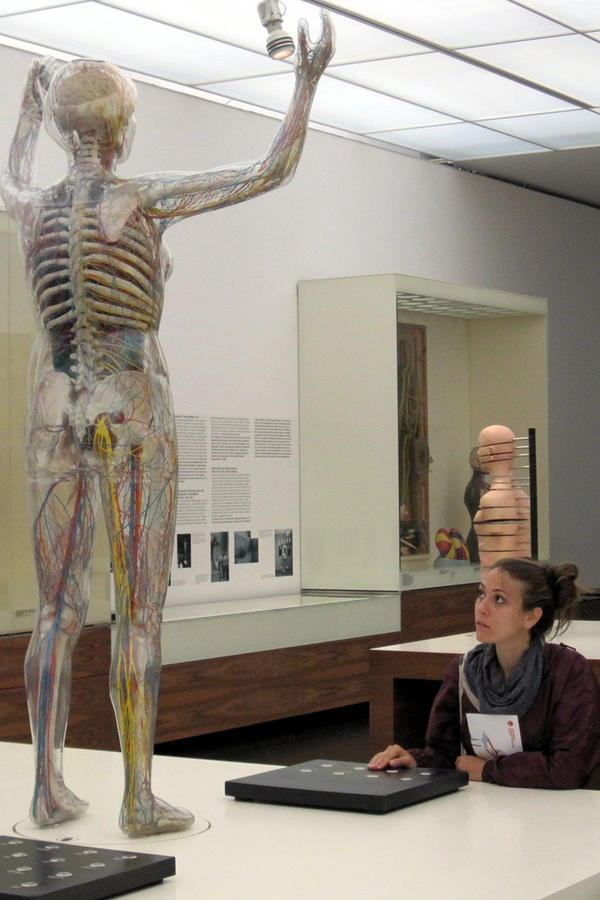Why I Love Science

by Sarah Caesar
The scraping of chairs against the polished floor, extrication of books from already bursting full backpacks and the usual conversation about homework assignments, came to an abrupt end as our school bell resonated down the hallway.
It was first period and I was sitting in the front row of Ms. Hopp’s Anatomy and Physiology classroom. The dimming of the class lights along with the monotonous humming of the projector’s cooling fan cued the start of our lecture that day, titled ‘Parts of a Kidney’.
I was sure that keeping in line with anatomical tradition, we would name the top, middle and bottom halves of the bean shaped organ that was on display, bringing a quick end to the class.
I could not have been more wrong.
As Ms. Hopp progressed from slide to slide, I found I was enthralled by the biological complexity of the renal system. Whether it be the glomerulus’ ability to act as a high pressure filter or the doppelganger role that the kidney plays as an endocrine organ to regulate blood pressure, the complexity and diversity of the organ was mind boggling.
This is a theme that has been recurrent in any part of the biological system that I have been fortunate enough to study.
In many ways, I am a late bloomer. There are times that I wish that I had stumbled upon the joys of biology at a young age. My passion for the subject took root during my high school years and has been nurtured this past year.
My sister is a PhD candidate in Biomedical Engineering at Georgia Tech and I cannot recall the number of times she and I have discussed how far away we are from even remotely replicating the function of a single organ despite the enormous strides that our society has made in computing, mathematics and engineering. My fascination with the workings of this magnificent and other complex structures of science continues to grow as the day by day.
One of the main reasons why I am interested in biology is because, as Dr. Roy Glover puts it, “[the human body] is the only thing you carry with you from the moment you are born until your very last breath.” As a natural wonder, the human body is the ultimate equalizer. It remains fundamentally the greatest thing that we share with every single being of our species regardless of color, race, creed or position in society.
I might have been a late bloomer to science, but I have been blessed with an ability to connect with children from a very young age. They enjoy my company as much as I do theirs. In order to merge my passion with my strengths, I hope one day to serve the community as a pediatrician.
In order to gain insight into the medical field, I have been volunteering at Emory University’s Children’s Healthcare of Atlanta (CHOA). During my time there, I gained a valuable understanding of what actually happens in a hospital environment. Also, I witnessed the inexplicable joy of playing with toddlers, the devastation of learning of a child’s terminal condition and the empathy required to deal with a patient’s loved ones.
The greatest part of working at CHOA was the ability to witness humanity at its finest. The children at CHOA gave me so much more than I will ever be able to give back to them. Their unadulterated joy despite the medical challenges that lay ahead of them was a testament to the innocence that we often lost with age. In a perfect example of life’s irony, I learned the greatest philosophical lesson of hope and perseverance from little children who can barely even spell the word ‘philosophy’.
In many ways, the time I spent at CHOA has outlined the challenges that await me on the road to becoming a physician. I hope to make people’s lives better through my life’s work. While the going may get tough and the road might be narrow, my determination has never been stronger. I could not agree more with Mahatma Gandhi when he said, “The best way to find yourself is to lose yourself in the service of others”.

